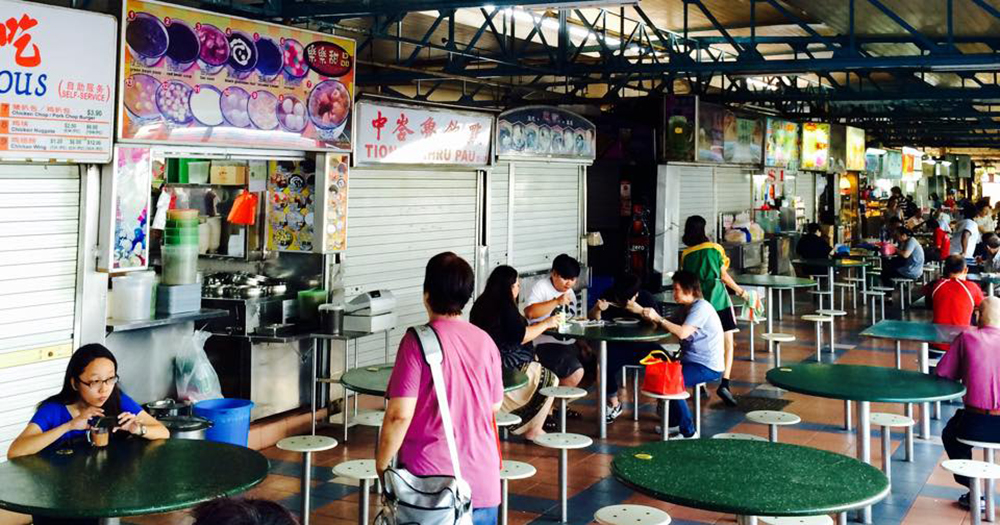The past few weeks have seen plenty of discussions on the issue of social enterprise hawkers, with comments about how the social enterprise hawker centres are crippling hawker culture rather than preserving it.
On Nov. 9, the National Environment Agency (NEA) released a press statement, promising greater flexibility to the contracts between hawkers and the social enterprises.
The press statement adds that the changes to the contracts were the result of feedback from the public and hawkers, and discussions with the social enterprises.
For those of you not in the know, there are five social enterprises acting as operators for seven hawker centres, out of a total of 114 hawker centres.
The five social enterprises are: Fei Siong Social Enterprise, OTMH,Timbre+Hawkers, Hawker Management, and NTUC Foodfare Co-operative.
What are the changes?
At an immediate glance, the changes promised are:
- More options for operating hours
- Adjustments to the termination clauses
- Keeping the rate of imposed liquidated damages at a reasonable rate
- The bearing of legal fees by the social enterprises
The social enterprises have agreed to implement the contractual changes with effect from Jan. 1, 2019.
Flexibility for working hours
On this promise, NEA states that hawkers may now:
"...operate at least five days a week, and if they wish to, continue to operate for more than five days."
What's more, hawkers will now be given options for their operating hours and should they wish to operate beyond eight hours a day, the social enterprises will discuss with them "on how they plan to do so and if they would have sufficient manpower".
The press statement also noted that:
"Stallholders(hawkers) are encouraged to work with the operators(social enterprises) to schedule their off-days to ensure that the needs of residents and patrons continue to be well-served."
Adjusted termination clauses
With regard to this change, NEA states that hawkers will be allowed to terminate their tenancies by giving the social enterprises sufficient notice of not more than two months.
Additionally, the security deposit held by the social enterprise will consist of "no more than two months’ rent", and if the notice served by the hawker is advanced enough:
"...the operator would not forfeit the security deposit, nor require the stallholder to pay rent of more than two months or until a replacement stallholder is found, unless the stallholder has breached the tenancy agreement or caused damage to the stall premises."
Keeping the rates of imposed liquidated damages and business costs low
Accordingly, NEA has stipulated that the liquidated damages "should be kept reasonable, at no more than $50 for minor ones and $100 for major breaches."
The same also applies to "business and administrative costs for hawkers" with NEA further adding that the social enterprises will:
"...bear all legal fees that they may incur arising from the preparation and execution of the agreements with the stallholders, except for any stamp duty payable by the stallholders."
Multiple complaints made about social enterprise hawker centre
The changes come on the heels of multiple complaints that emerged over the social enterprise hawker centre model.
In October, complaints were made about the implementation of the model at Old Airport Road Hawker Centre which allegedly resulted in:
- Hawkers made to sign legal documents in English without the help of a translator.
- Hawkers made to pay mandatory insurance of S$100++ per annum for the area outside their stalls.
- Hawkers’ cleaning costs increased by S$200 per month.
- Hawkers made to report their daily movements to the operators or face punishment.
- Hawkers made to stay open for “very long” hours (the exact number of hours is unspecified).
Mid-October also saw a post put by food advocate KF Seetoh on the contract for hawkers operating at Our Tampines Hub, another social enterprise-run hawker centre.
Here, KF Seetoh pointed out the harsh terms and conditions imposed in the contract that, among other things, ran up to 51 pages, dictated the amount of vegetables and calories in a dish and imposed unduly severe fines.
The same month subsequently saw Senior Minister of State for the Environment & Water Resources Amy Khor acknowledging the very strong public reaction regarding the social enterprise hawker centres:“There has been a lot of discussion on our Social Enterprise Hawker Centres lately. We have 114 hawker centres, of which 7 new centres are run by social enterprises. The passionate views shared by many show the important place our hawker culture has in the hearts of Singaporeans. Such conversations are important, and we welcome the feedback so that we can continue to do better.”
NEA recognises "that hawkers are central to the hawker trade and our hawker culture"
Perhaps unsurprisingly, this is why NEA's press statement acknowledges at the start that "that hawkers are central to the hawker trade and our hawker culture", noting that hawkers "face the challenge of maintaining a balance between providing affordable food and business costs."
NEA has also elaborated that the social enterprise hawker centre model is a work in progress and:
"...will continue to engage these (hawkers') feedback groups to clarify and make adjustments, so as to better address challenges faced by hawkers."
The contractual changes have since been made NEA's immediate priority.
Top photo from A WL Koh Facebook
If you like what you read, follow us on Facebook, Instagram, Twitter and Telegram to get the latest updates.
